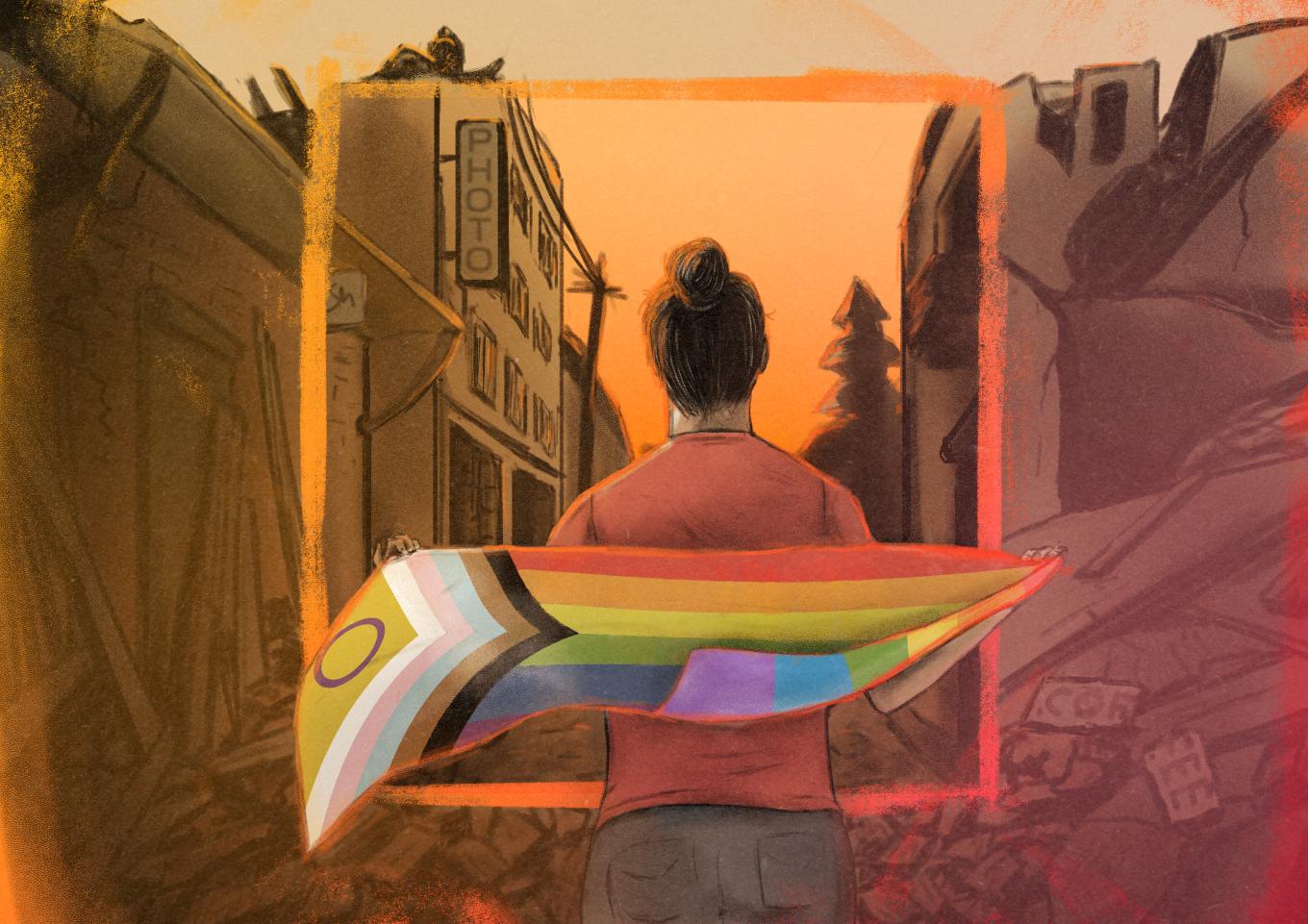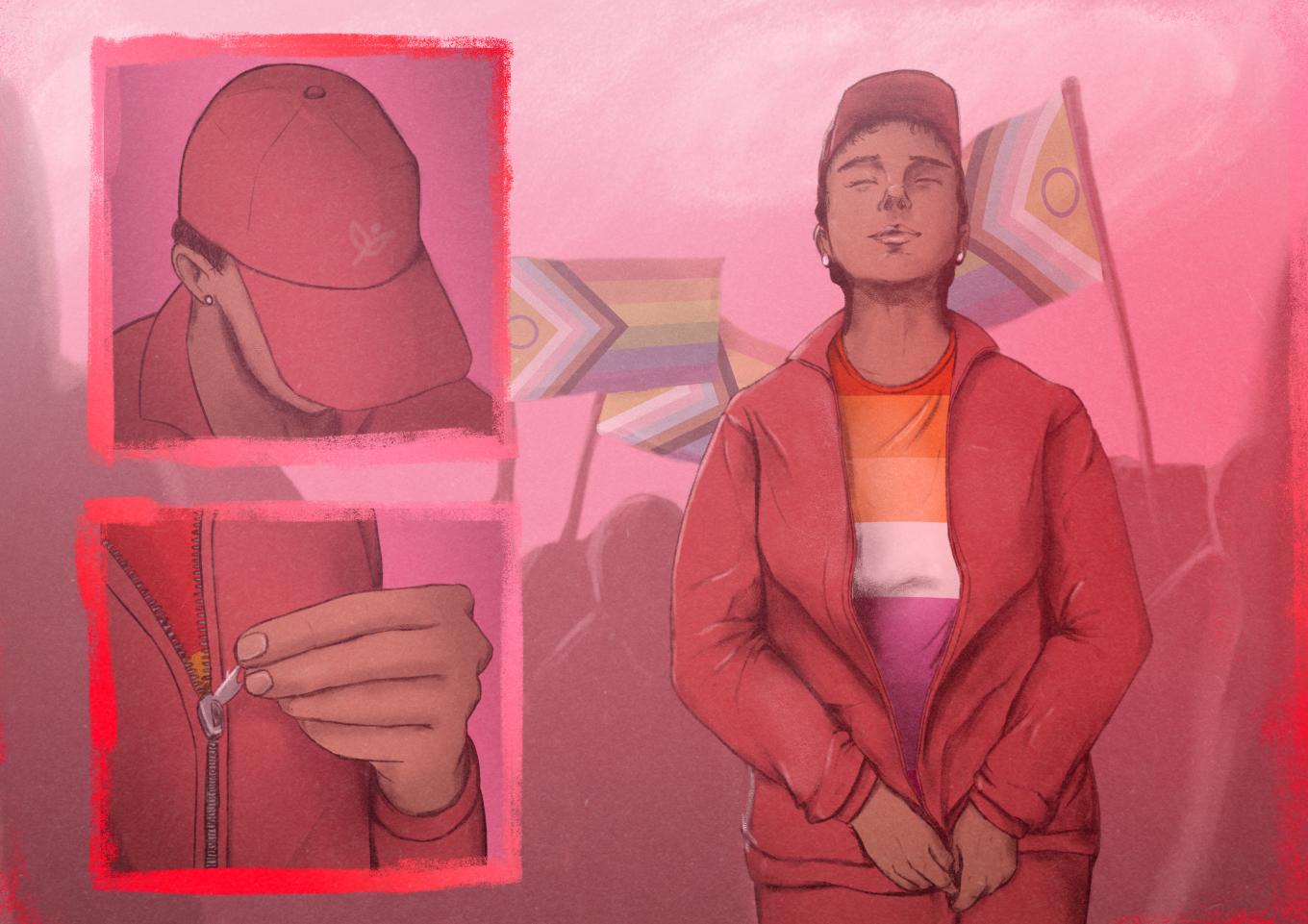
Insights
Report Calls For Inclusion And Protection Of LGBTIQ People During Humanitarian Crises
Region(s)
TOPIC(s)
Type
Commentary
Author(s)
Publish Date
July 15, 2024
Share
In Colombia, a major humanitarian agency sought the guidance of a local organization supporting lesbian, gay, bisexual, transgender, intersex, and queer (LGBTIQ) communities to better address the needs of Venezuelan LGBTIQ migrants, resulting in much greater responsiveness to their needs. Following the devastating 2015 earthquake in Nepal, a local LGBTIQ organization trained humanitarian partners to better understand and address the overlooked needs of LGBTIQ communities. And in Ukraine, LGBTIQ organizations partnered with humanitarian groups to better reach those in need of protection, temporary housing, cash assistance, and other forms of life-saving support in the context of Russia’s full-scale war.
What do these stories have in common? They all demonstrate that, in times of crisis, meaningful inclusion of LGBTIQ people in humanitarian action is not only possible -- it is critical. While LGBTIQ people share common vulnerabilities with all affected populations, including, for example, the need for food, water, shelter, psychosocial support, and protection, they also have specific and diverse needs not faced by others. These may include protection from bias-driven violence and scapegoating, access to safe transport and shelter that respects queer families and trans, intersex, and gender non-conforming people, and the necessity of specialized medical care, including access to hormone treatment and HIV-related care.
These stories and others are documented in a new joint report by Outright International and Edge Effect titled, They Know What We Don’t: Meaningful Inclusion of LGBTIQ People in Humanitarian Action. The authors intentionally sought out positive stories of inclusion and collaboration between LGBTIQ organizations and humanitarian agencies with the hope of inspiring change in a sector that has long struggled to sufficiently meet the needs of queer people.

Illusion for They Know What We Don’t: Meaningful Inclusion of LGBTIQ People in Humanitarian Action report by Maksym Filipenko.
Unfortunately, the case studies documented in the report are not typical- at least not yet. Far too often, LGBTIQ people are left out and left behind during humanitarian crises due to pre-existing stigma and discrimination that exacerbates risk when crisis hits. Other factors that hinder effective support include a lack of understanding among mainstream humanitarian agencies, hostile sociocultural, legal, and political contexts, and an unwieldy humanitarian bureaucracy.
The Outright-Edge Effect report, however, does not dwell extensively on the well-documented shortcomings of the humanitarian system. Rather, through interviews with humanitarian workers and LGBTIQ activists and case studies from Colombia, Lebanon, Myanmar, Nepal, and Ukraine, the report seeks to illuminate examples where humanitarian actors and LGBTIQ community organizations are working toward equitable partnerships to ensure LGBTIQ communities access timely humanitarian assistance with dignity and respect. In one example, Mercy Corps created a remunerated partnership with Caribe Afirmativo in Colombia to better reach LGBTIQ migrants. Through this collaboration, each organization’s capacity was strengthened through open, safe sharing of expertise with the other, which resulted in much more effective programming. Other examples include jointly developing LGBTIQ-sensitive toolkits and guidelines and ensuring that organizational non-discrimination, duty-of-care, and other policies are enacted at all levels of response. Across all examples is this simple fact: partnerships between LGBTIQ organizations and humanitarian actors work best when the voices of local LGBTIQ people are centered in programmatic decision-making.
Among other findings, the research makes it clear that strengthening LGBTIQ inclusion cannot rely exclusively on the goodwill of internal allies within the humanitarian system. Inclusion must be institutionalized, resourced, and integrated into action plans and response strategies. In addition, inclusion must be part of larger cross-sector efforts to improve localization and decolonize aid. Humanitarian organizations are well-placed to build bridges between local LGBTIQ organizations and humanitarian coordination structures that lead needs assessments and determine response strategies.
The report’s findings also highlight some pitfalls. For example, while LGBTIQ actors should be at the forefront of initiatives that aim to meet their needs, an overreliance on these organizations without adequate support or acknowledgment of the challenges of the local context can result in fatigue and frustration. Humanitarian organizations must learn how best to operate collaboratively with LGBTIQ communities in ways that harmonize the strengths, safety needs, and capacities of both.

Illusion for They Know What We Don’t: Meaningful Inclusion of LGBTIQ People in Humanitarian Action report by Maksym Filipenko.
Finally, it is crucial to recognize the diversity within LGBTIQ populations and find a balance between targeted LGBTIQ programming and sensitizing mainstream programming to meet LGBTIQ needs. The LGBTIQ umbrella captures a broad array of identities and experiences that may inhibit or enhance visibility, access to services, and trust in institutions. The intersecting components of individuals' identities will inform their needs, preferences, and capabilities.
The report is being published at a time in which humanitarian crises roil the world: from Gaza, where Israel’s ceaseless bombardments and blockage of aid means that no one is receiving adequate assistance, including LGBTIQ people; to Sudan, which now has the highest number of internally displaced people of any country in the world; to Afghanistan, where more than half the population will require humanitarian assistance this year. Outright and Edge Effect are well aware that addressing the humanitarian needs of LGBTIQ people in conflict, post-conflict and other disaster contexts requires not only inclusive responses, but more fundamentally, a commitment from both governments and non-governmental organizations to prevent conflict and crisis.
A sincere commitment to humanitarian principles compels action toward improving outcomes for all people, including LGBTIQ populations. It's time to dismantle the barriers that have prevented their full inclusion in humanitarian action.

Take Action
When you support our research, you support a growing global movement and celebrate LGBTIQ lives everywhere.
Donate Now